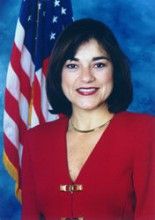Tom Steyer passes on U.S. Senate bid
by John | January 23, 2015 9:06 am
 Billionaire climate change activist Tom Steyer has decided not to run for U.S. Senator Barbara Boxer’s seat in 2016 when she retires.
Billionaire climate change activist Tom Steyer has decided not to run for U.S. Senator Barbara Boxer’s seat in 2016 when she retires.
After two weeks of almost daily speculation of “will he or won’t he,” Steyer announced his decision in a blog post at the country’s top liberal news website.
“I believe my work right now should not be in our nation’s capitol but here at home in California, and in states around the country where we can make a difference,” Steyer wrote at the Huffington Post[1]. “Going forward, I intend to redouble my efforts working with partners and fellow citizens to push for change.”
Steyer also plugged his climate-change agenda, which has become the former hedge fund manager’s second calling after making millions from coal power plants in Australia[2].
“Some fossil fuel corporations, and the financial interests linked to them, benefit from the activities that contribute to this urgent crisis for our planet — but they are not the ones who pay the price,” Steyer wrote. “The costs are born by all the people; the rewards meted out to the select few. It’s not fair. And it’s not just.”
Focus turns to John Chiang, other Democrats
 Steyer’s decision to forgo a U.S. Senate run turns the focus to other wealthy liberals, Democratic name-brand candidates and statewide elected officials who are considering a challenge to the only announced Democratic candidate, Attorney General Kamala Harris. Among those top-tier Democrats still considering the race are state Treasurer John Chiang[3], Rep. Loretta Sanchez, D-Garden Grove, and former Los Angeles Mayor Antonio Villaraigosa.
Steyer’s decision to forgo a U.S. Senate run turns the focus to other wealthy liberals, Democratic name-brand candidates and statewide elected officials who are considering a challenge to the only announced Democratic candidate, Attorney General Kamala Harris. Among those top-tier Democrats still considering the race are state Treasurer John Chiang[3], Rep. Loretta Sanchez, D-Garden Grove, and former Los Angeles Mayor Antonio Villaraigosa.
Chiang, a well-respected Democrat with better net approval ratings than Gov.Jerry Brown[4], would be a natural successor with his reserved, no-nonsense leadership style. He also earned more votes[5] than any other candidate after Brown in last November’s statewide election.
Mainstream buzz for Villaraigosa
A former mayor of the state’s largest city, Villaraigosa earns the most buzz from the political establishment. However, Los Angeles politicians have struggled to win statewide races, undercut by lower voter turnout in Southern California. Villaraigosa went out of his way to court Steyer and his environmentalist supporters.
“Tom Steyer has shown himself to be a real champion for change in his passionate campaign for a cleaner and healthier world,” Villaraigosa said in a statement released to the Associated Press[6].
Both Villaraigosa and Sanchez would be bolstered by the state’s sizable Latino voting bloc, which turns out in greater numbers during presidential years as compared to gubernatorial election years. Even with low turnout, Latino voters are a considerable political force.
“The dynamics have changed since 1992,” Fabian Nuñez, a former state Assembly speaker, told the Los Angeles Times[7]. Speaking of Latino voters, he said, “We have a role to play.”
Sanchez could be formidable challenger
In particular, Sanchez could be a formidable challenger to Harris and Villaraigosa. As a prominent Latina congresswoman, she’d likely pull female voters from Harris and Latino voters from Villaraigosa. Moreover, Sanchez has a blunt, straight-talking demeanor that could further expose Harris’ more controlled and calculating political approach.
 In its 2014 endorsement of Harris for state attorney general, the Los Angeles Times described Harris as “too cautious,” a trait that could hamper her in a contested statewide primary.
In its 2014 endorsement of Harris for state attorney general, the Los Angeles Times described Harris as “too cautious,” a trait that could hamper her in a contested statewide primary.
“She is also tactical and sometimes too cautious; consider her reluctance to tackle such thorny questions as marijuana legalization and the implications of California’s teacher tenure rules for the quality of education,” the Times wrote in its editorial[8] backing Harris for attorney general. “Both are divisive issues where taking a stand could alienate supporters.”
Sanchez has a remarkably different approach. With a more direct style and off-the-cuff remarks[9] that occasionally get her into trouble, she has managed to create a cult following with her highly-anticipated annual Christmas card, which the Washington Post described[10] as including a “pinup-worthy pose.”
Still 654 days until Election Day
With so much early hype about the 2016 race, it’s easy to forget just how far away the race is. Under California’s Top Two election system, the race could remain competitive until the November general election. As of this writing, Election Day 2016 is 654 days away[11]. That’s light years in the age of 24-hour news and constant social media updates.
In the short term, Steyer’s decision to pass on the race brings a sigh of relief to Harris. As the perceived front-runner, Harris likely would have been on the receiving end of millions of dollars in Steyer attack ads. His decision was also embraced by GOP critics.
“@TomSteyer not running,” tweeted Rob Stutzman[12], a GOP consultant who advised Meg Whitman’s failed 2010 gubernatorial campaign, “is acknowledgement that political climate change is real.”
- the Huffington Post: http://www.huffingtonpost.com/tom-steyer/senate-climate-change_b_6525724.html?1421958664
- power plants in Australia: http://www.nytimes.com/2014/07/05/us/politics/prominent-environmentalist-helped-fund-coal-projects.html?_r=0
- John Chiang: http://www.calnewsroom.com/tag/john-chiang/
- net approval ratings than Gov.Jerry Brown: http://www.calnewsroom.com/2015/01/09/us-senate-2016-john-chiang-has-better-favorable-ratings-than-gov-jerry-brown-part-iii/
- more votes: http://www.calnewsroom.com/2014/11/19/why-john-chiang-tops-field-of-democratic-hopefuls-in-2016/
- Associated Press: http://hosted2.ap.org/WVLOG/f0fb39ba210e4705b63f4a0f168573df/Article_2015-01-22-CA--California%20Senate/id-5742173a31c74283991a5dbaef406e2e
- Los Angeles Times: http://www.latimes.com/local/political/la-me-pc-villaraigosa-senate20150119-story.html
- wrote in its editorial: http://www.latimes.com/opinion/endorsements/la-ed-end-attorney-general-20140924-story.html
- off-the-cuff remarks: http://www.cbsnews.com/news/loretta-sanchez-the-vietnamese-are-trying-to-take-my-seat/
- Washington Post described: http://www.washingtonpost.com/blogs/reliable-source/wp/2014/12/10/loretta-sanchezs-new-holiday-card-does-not-disappoint/
- 654 days away: http://www.270towin.com/2016-countdown-clock/
- tweeted Rob Stutzman: https://twitter.com/RobStutzman/status/558370232746512384
Source URL: https://calwatchdog.com/2015/01/23/tom-steyer-passes-on-u-s-senate-bid/